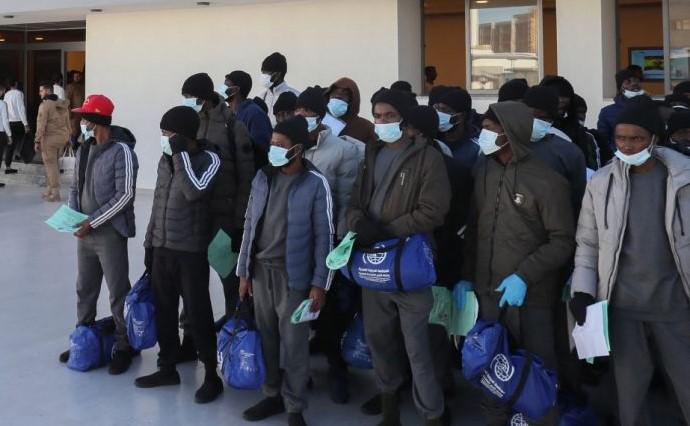In a record-breaking deportation flight, 44 Nigerians and Ghanaians were forcibly deported from the United Kingdom on Saturday, reflecting a significant escalation in the country’s immigration enforcement.
The UK Home Office confirmed the deportation as part of a broader crackdown on illegal immigration, which has seen over 3,600 individuals deported since the Labour government assumed office in July.
The Home Office spokesperson emphasised the government’s commitment to upholding immigration laws, stating, “We are dedicated to enforcing immigration rules and ensuring those without legal rights to remain in the UK are returned.”
This latest flight marked a sharp increase in the number of deportees, with only four similar flights to Nigeria and Ghana since 2020, and previous flights carrying as few as six and no more than 21 individuals. The recent flight, which saw the removal of 44 people, is more than double the number seen in previous instances.
The deportation came amid broader immigration issues involving asylum seekers arriving in Diego Garcia, a UK-administered island in the Indian Ocean. News emerged that asylum seekers arriving there before the finalization of a treaty between the UK and Mauritius will be relocated to Saint Helena, a British territory in the Atlantic. The treaty, expected to be signed next year, will not apply to around 60 Tamils stranded on Diego Garcia since 2021, who are currently engaged in legal battles regarding their detention.
While the number of asylum seekers arriving in Diego Garcia remained in the hundreds, it paled in comparison to the influx across the English Channel. On Friday alone, 647 individuals made the perilous journey from northern France in small boats, pushing the total number of arrivals for the year beyond 28,000.
Ahead of the flight, ‘The Guardian’ interviewed four Nigerian men held at Brook House immigration removal center near Gatwick. One man, who had been in the UK for 15 years seeking asylum, expressed his distress: “I have no criminal record, but the Home Office has refused my claim.” Another detainee revealed that he had been a victim of trafficking and bore scars from torture, yet his asylum claim had also been rejected.
Fizza Qureshi, chief executive of the Migrants’ Rights Network, condemned the deportations, citing the speed and secrecy of the process, as well as the lack of legal support. She quoted one of the detainees who stated, “The Home Office is playing politics with people’s lives. We have not done anything wrong other than cry for help.”
This surge in deportations and the related legal and humanitarian concerns have continued to spark debates over the UK’s approach to immigration and asylum seekers.





